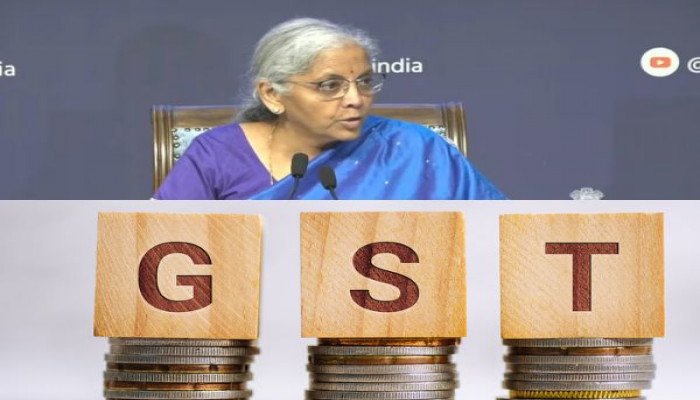GST Council approves two-slab structure, cuts rates on essentials
- In Reports
- 07:35 PM, Sep 04, 2025
- Myind Staff
The GST Council has approved a new two-slab framework, removing the 12% and 28% brackets, reducing rates on essential items, and raising taxes on some products.
On Wednesday, Finance Minister Nirmala Sitharaman announced major changes aimed at easing the tax burden on ordinary citizens, helping businesses through reforms in GST refunds, and increasing consumption by cutting taxes on daily-use products such as ghee, butter, roti, shampoo, hair oil, and toothpaste. Investors had been closely tracking the outcome of the 56th GST Council meeting, with markets showing positive expectations in the lead-up.
On Thursday, stocks in FMCG, healthcare, infrastructure, small automobiles, and farm and renewable infrastructure sectors gained attention as the government introduced sharp GST reductions in these areas. At the same time, tax rates were raised on tobacco, luxury cars, beverages, yachts, and other premium goods.
The Council also cleared the Centre’s proposal to simplify the indirect tax system into a two-rate structure of 5% and 18%, while keeping a higher 40% rate for luxury and sin goods. This will replace the earlier four slabs of 5%, 12%, 18%, and 28% with a simpler system.
Revenue Secretary Arvind Shrivastava estimated the overall fiscal impact of these changes at Rs 48,000 crore and said the reforms are aimed at boosting consumption and improving compliance.
Union Commerce and Industry Minister Piyush Goyal on Thursday described the new GST rationalisation as “game-changing” and urged industry leaders to ensure that consumers fully receive the benefits.
Speaking at the India MedTech Expo 2025, Goyal said, “Yesterday’s reform in indirect taxes in GST, coming on the back of several initiatives over the last 11 years, is transformational in nature, significantly impacting the pharma sector, significantly impacting so many sectors, right from the farmer until our MSMEs.”
He added, “Every stakeholder in the country, every consumer, stands to benefit.”
The minister stressed that the reduction in rates would lower costs across sectors and play a crucial role in India’s journey towards becoming a developed country by 2047. He called on businesses to “pass on all these benefits of GST to the consumers.”
The automobile industry welcomed the GST Council’s decision to reduce tax rates on vehicles, saying it will increase demand, make cars and two-wheelers more affordable, and particularly support first-time buyers and middle-income households.
The new two-slab system, announced on Wednesday, will be implemented from September 22 with rates of 5% and 18%.
Industry leaders said the decision will give fresh momentum to the sector and also requested the government to provide clarity on compensation cess rules for unsold vehicles to ensure a smooth transition.
BJP leader V Muraleedharan said, "The new tax slabs of the GST, which were announced by the Finance Minister yesterday, is a great Onam gift to the people of Kerala. It has come on the eve of the greatest festival of the Keralites. It is going to benefit the poor, middle class, and various other sections of society... Zero GST will be applicable on health insurance. GST Council has decided to enhance the GST for big corporates... Tax revenues will not come down... I don't understand why the Kerala Finance Minister did not raise any objections during the GST Council meeting, but after the meeting, he interacted with the Malayali media and said that it will create problems for Kerala."







Comments